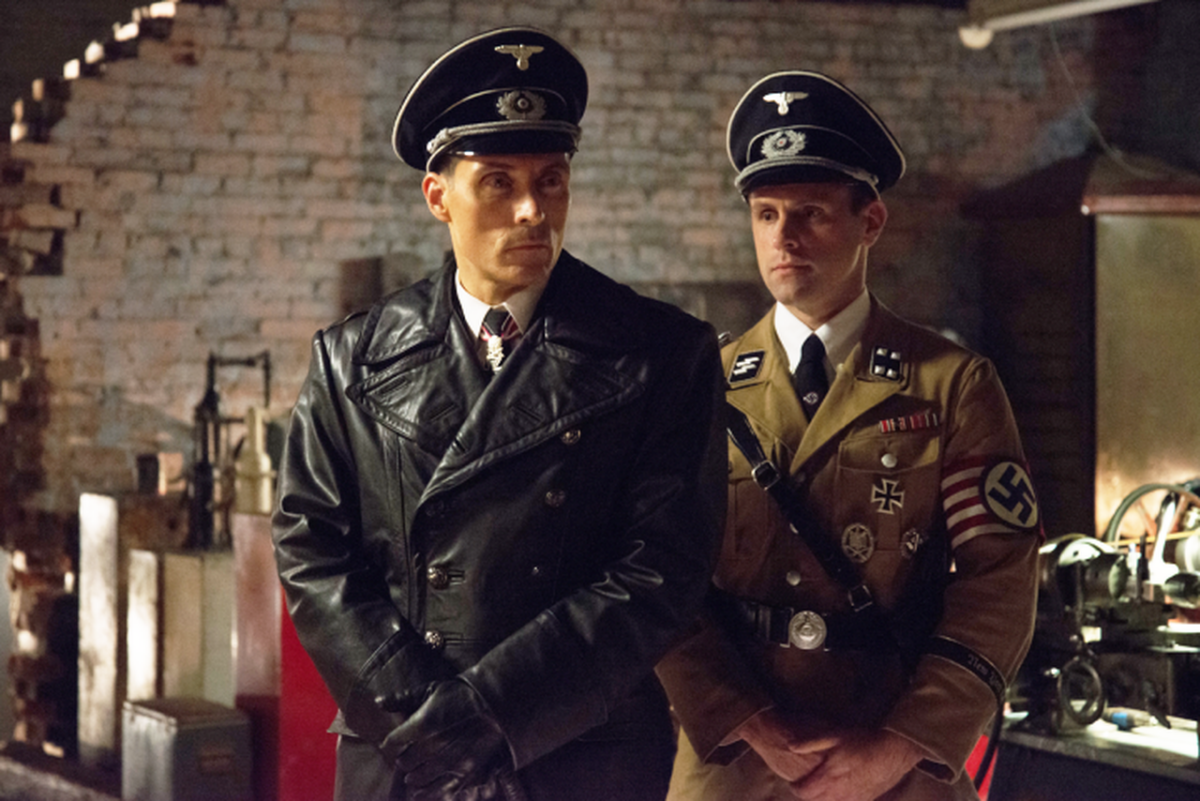It’s a big “what if” question with sweeping, sickening ramifications.
What if Nazi Germany and Japan had won World War II, conquered the United States and divided it among themselves?
This scenario, too horrible even to contemplate, is skillfully fleshed out in Amazon Prime’s series, The Man in the High Castle, which ran from 2015 until 2019 and is still available online.
Based on Philip Dick’s novel and created by Frank Spotnitz, it requires a suspension of belief from viewers, who are expected to accept the premise that the outcome of the war was radically different.
The year is 1962 and the United States is split into two entities: The Greater Nazi Reich in the east, with its capital in New York City, and the Japanese Pacific States in the West, with San Francisco as its capital.
A Neutral Zone, where law and order have broken down, is located in the Rocky Mountain region.
The title of the series is a reference to a mysterious man, sought by the Germans and the Japanese, who churns out anti-Axis newsreels and home movies that could encourage Americans to take up arms and revolt against the occupation of their country.
The Greater Nazi Reich is a virtual facsimile of Nazi Germany. Swastikas are plastered on signs and buildings. Officials greet each other with the salutation “Heil Hitler.” Adolf Hitler’s likeness illustrates bank notes.
Oriental culture is deeply entrenched in the Japanese Pacific States. Outdoor Asian markets are common, people sprinkle Japanese words into their conversations, and rifle-toting Japanese soldiers are constantly on patrol.
In both domains, the cities are run down and grimy, the housing is dilapidated, and the ambience is grim.
Judging by the first eight episodes, The Man in the High Castle succeeds in conveying this mood of despair and hopelessness. The production values are superior, and the cast is well chosen.
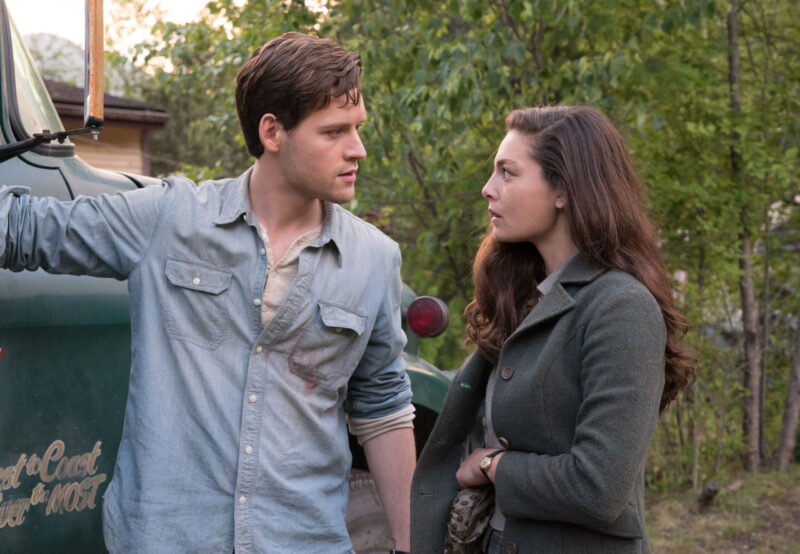
In the introductory episode, Joe Blake (Luke Kleintank), a handsome and well-scrubbed young man, joins the anti-Nazi resistance movement in New York City. He’s actually a Nazi agent reporting to John Smith (Rufus Sewell), an avid Nazi and high-ranking officer in the dreaded SS police force.
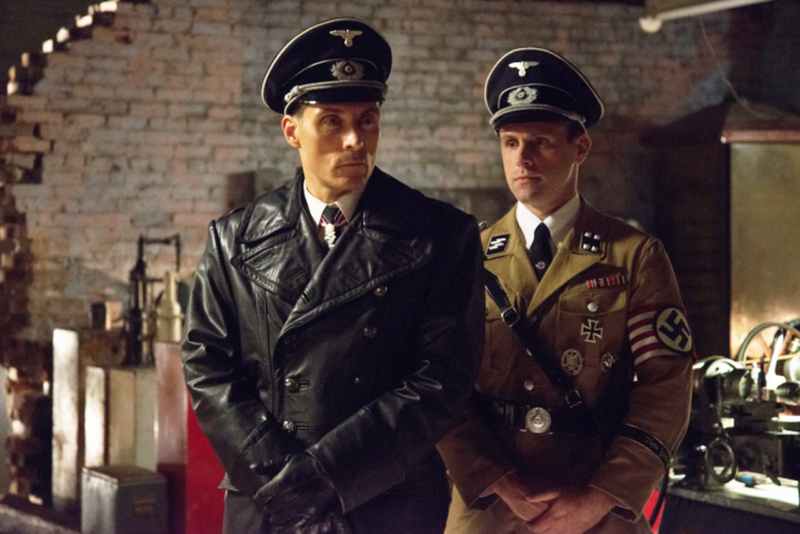
Juliana Crain (Alexa Davalos), a resident of San Francisco and an aikido instructor, has accepted the status quo and has friendly relations with Japanese people, some of whom are fascinated by American culture.
Her boyfriend, Frank Frink (Rupert Evans), a skilled craftsman who works in a factory that produces replicas of prewar American pistols, is of partial Jewish ancestry. He’s vulnerable because Japan has adopted Germany’s racial laws.
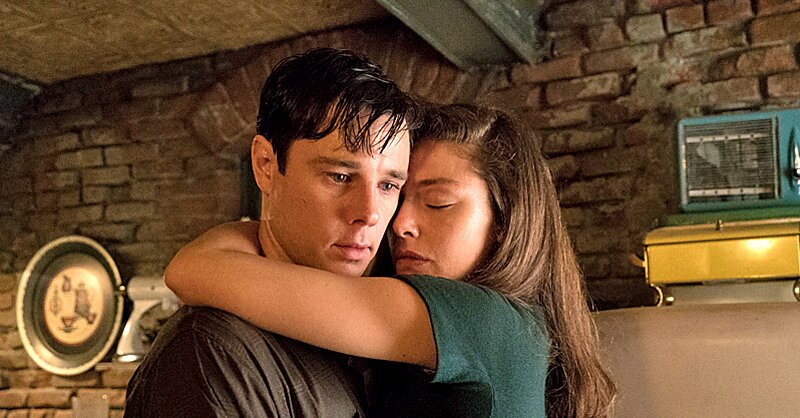
Juliana’s attitude toward Japan’s occupation changes when her sister, a member of the anti-Axis underground, is shot after being accused of treasonous activities. Juliana’s American patriotism is doubly reinforced by her discovery of the “subversive” films made by the elusive man in the high castle.
She and Joe cross paths in the Neutral Zone, where a deranged bounty hunter (Burn Gorman) searching for concentration camp escapees wreaks havoc. Joe falls in love with her, undermining his loyalty to the Greater Nazi Reich.
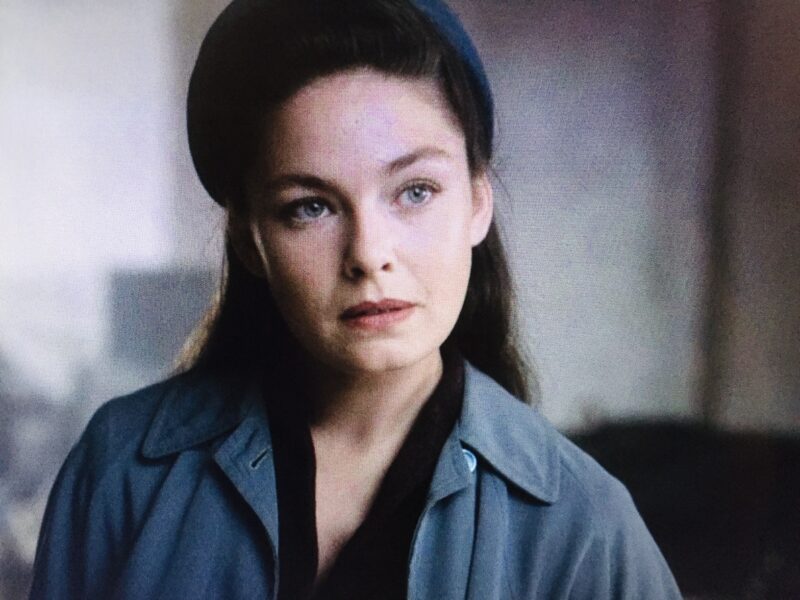
Back in San Francisco, Juliana finds a job at the Japanese trade mission. Her boss, Trade Minister Nobusuke Tagomi (Cary-Hiroyuki Tagawa), forms a relationship with a German dissident diplomat, Rudolf Wegener (Carsten Norgaard), who thinks that Germany has committed war crimes.
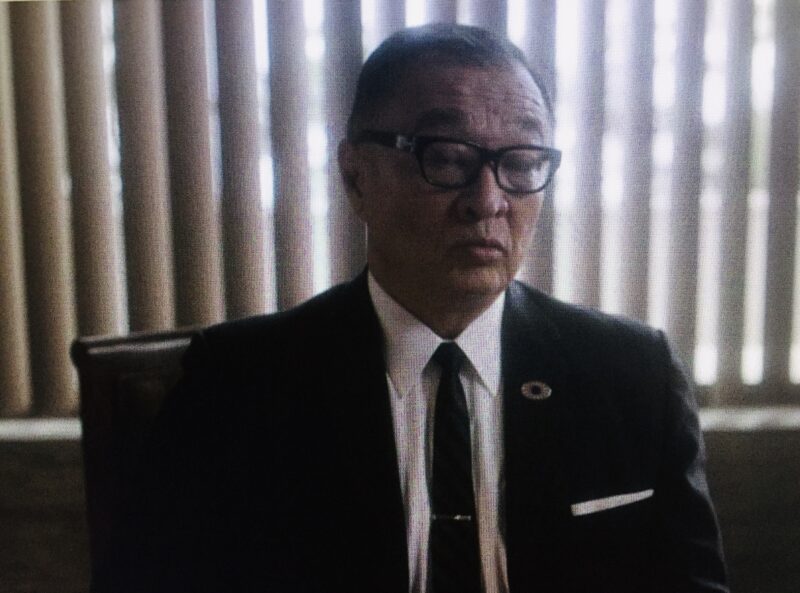
The Germans and the Japanese, though allies, have tense relations. Japan fears that Germany, which is far more technologically advanced, covets the Japanese Pacific States.
The Jewish question pops up periodically.
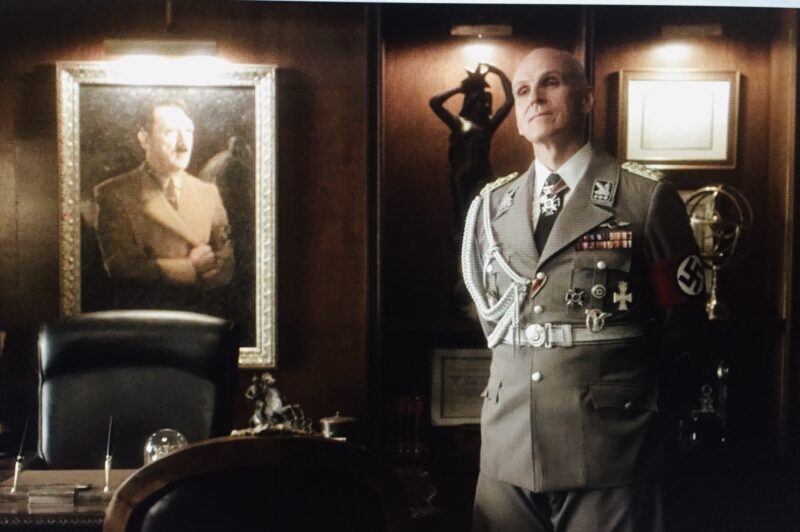
Jews assemble to pray in secret, since synagogues have been closed. A “lynch mob” in Boston murdered Jews after the United States surrendered to the Axis powers. Yet hope springs eternal. “We’ll survive,” says a Jewish man in conversation with Frank. “We always do.” This optimism is starkly set off by the harsh comment of a Nazi leader about the “eradication of Semites in Europe.”
The Man in the High Castle delivers a plausible and chilling portrait of what could have transpired in the United States had the Allies lost the war.
